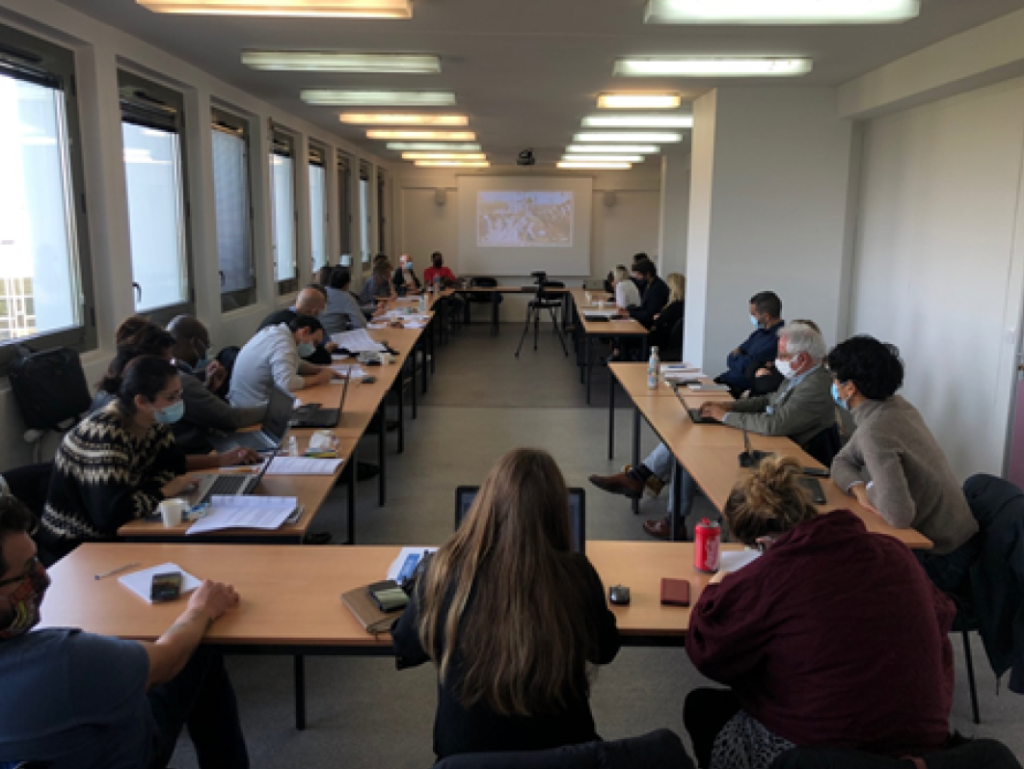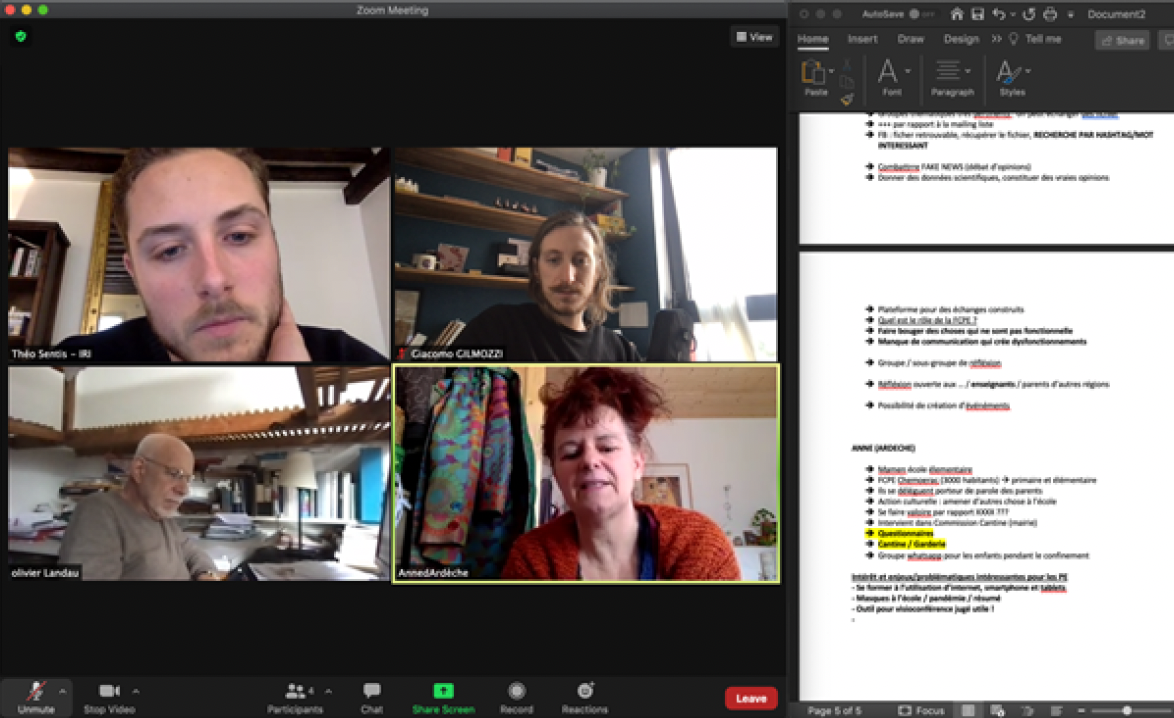The Clinique Contributive aims to create a physical space for dialogue and contributory help about issues regarding the danger of screen’s overexposure between 0 and 3 years old within the community. A social network will allow parents, researchers and medical professionals to establish good practices in a process of co-design and co-prescription.
The pandemic has profoundly impacted the services targeted by the pilots. A Gradual re-opening of social activities and public services that have been stopped or reduced in Paris started in May 2021. Among the many sanitary, social and economic problems arised by the pandemic in a similar way to other European city, here we
highlight some specific issues that are of relevance for the three scenarios envisaged for Paris:
- The Saint-Denis department was on of the most critical Covid-spot;
- Services such as the Protection Maternelle et Infantile started to have other kind of priorities, related to the isolation and domestic violence that has drastically increased in the Department;
- An exacerbation in the use of screens, which even before this was the main focus of the Contributory Clinic scenario, has been observed (see Naomi Klein’s article on the Screen New Deal).
- Schools remained open in the Department, but with fewer students and classes. Many schools reviewed their priorities, directors and professors were struggling with distance learning; this led to intermittent in-class activities and less availability of some teachers to engage in extra-activities.
Some in-presence events were organized, but due to the emergent priorities of the service in the Department the testing of the main thesis and hypothesis of the project, ad of the CO3 application, have been postponed to May 2021 (partial opening), and the qualitative analyses of the tools to June, even with still subject to uncertainties on the sanitary conditions.
The Urban Modelling scenario actively involves citizens and middle-school students in the re-planning of their territory, for the development of a shared and critical knowledge about the urban spaces, and the experimentation of decision-making and deliberative processes.

The Urban Modelling scenario (Paris 2) confirmed its original structure as regards most of the activities planned with the five schools, even with some rescheduling. Monthly Seminars with teachers took place between September and December 2020 as planned. The official launch has been postponed to May. Many activities with the schools took place intermittently when schools were open, and with fewer number of students and classes, with a stabilization of the situation from May 2021 on. Rescheduling of the activities has been done in order to keep into account the distance learning mode and the consequent organizational issues that teachers were facing.
It was decided not to implement the part of the pilot regarding the experimentation of a knowledge economy via the utilization of tokens: this due the limit of time and the secondary importance of these actions for the good development of the main thesis, hypothesis and engagement plan’s actions. New activities have been planned, such as Hackathons in two schools as special activities that professors wanted to include in the project.
The Blockchain-Registry Scenario is a research and in vitro experiment of how the blockchain could disrupt and modernise the system of the intermittents du spectacle in France, but also how it could be used as a registry for the knowledges acquired by citizens
on the territory within the framework of the contributory economy, tested by IRI in Plaine Commune.
The third scenario did not envisage implementing in presence activities. Hence, IRI continued working on these matters in order to present all the results of the blockchain modeling study at the end of the pilot experimentations. Instead of analysing real-world cases of the French pilot, this scenario will be targeted to a modelling scenario with more qualitative instead of quantitative issues for the use of this particular type of Blockchain.


